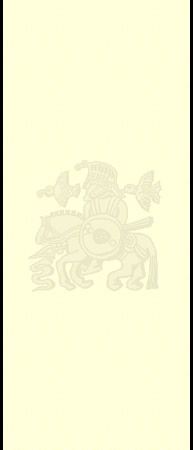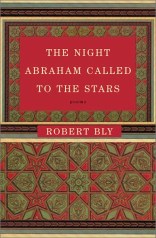



| Web site design and maintenance by Akikaze Media Services. All content of this site, unless otherwise noted, is copyright ©2001 Robert Bly. All Rights Reserved. Any duplication, in any form without the written consent of the copyright holder is prohibited. |

By Edward Hirsch
November 30, 2002: The Sufi poets believed in a universe beyond the
sensory world, a place they called the mundus imaginalis, which is "a
concrete spiritual world of archetype-Figures, apparitional Forms, Angels of
species and individuals," and it seems to me that it is there (or some
place much like it) that Robert Bly has often gone to create his best work.
Bly’s poems keep opening up interior realms, like floors giving way, and
have great spiritual access. At times, he is Thoreau in Minnesota, scrupulously
observing the natural world, preserving the wilderness that is both within and
without, unleashing his wrath against imperial power. "The walls of
my poetry
house are splashed with blood," he writes in his poem "The Trap-Door," "I
don’t want to be inward." At other times, he is like the 14-year-old
Jabir the Brilliant, arranging sounds so that they become holy. "Friends," he
declares in the same poem, "each day I crawl over and kiss some of the
books
I love." I’ve always been struck by how political outrage and spiritual
reverence sit side by side in Bly’s work.
These thoughts are occasioned by Bly’s collection The Night Abraham
Called
to the Stars (2001), which recently won the Maurice English Poetry Award for
a distinguished book of poems published in the preceding calendar year by a poet
over 50. Maurice English, who was a poet, a translator and the director of the
University of Pennsylvania Press, had a keen intelligence and a lifelong devotion
to poetry, and Bly is a worthy recipient of an award in his honor.
Bly has often found models for his poems in other cultures, and in this book
he displays his reverence for Islamic poetry, especially the work of Rumi and
Hafez, by adapting the ghazal form. He ignores some key traditional elements
of the ghazal, but he does capture its feeling of boundless surprise. What he
especially loves about the form is how each stanza operates as an independent
unit. The subject matter changes from stanza to stanza, which gives a sense of
leaping around, of rapidly shifting landscapes. Meanings accrue through association,
and there is a liberating feeling of freedom within the prescribed form.
I find a sacred sense of gratitude animating Bly’s poems, which move fluently
between the material and the ethereal. "Some people love only money," he
once said at a reading, "and some people love only eternity. I’m half-way
in-between." Like Abraham from the Koran, the figure he writes about so
well in the title poem of his new collection, he is "a man in love with
the setting stars."
THE NIGHT ABRAHAM CALLED TO THE STARS
Do you remember the night Abraham first called
To the stars? He cried to Saturn: "You are my Lord!"
How happy he was! When he saw the Dawn Star,
He cried, "You are my Lord!" How destroyed he was
When he watched them set. Friends, he is like us:
We take as our Lord the stars that go down.
We are faithful companions to the unfaithful stars.
We are diggers, like badgers; we love to feel
The dirt flying out from behind our hind claws.
And no one can convince us that mud is not
Beautiful. It is our badger soul that thinks so.
We are ready to spend the rest of our life
Walking with muddy shoes in the wet fields.
We resemble exiles in the kingdom of the serpent.
We stand in the onion fields looking up at the night.
My heart is a calm potato by day, and a weeping,
Abandoned woman by night. Friend, tell me what to do,
Since I am a man in love with the setting stars.
—Reprinted from The Washington Post, Weds., Nov. 20th,
2002